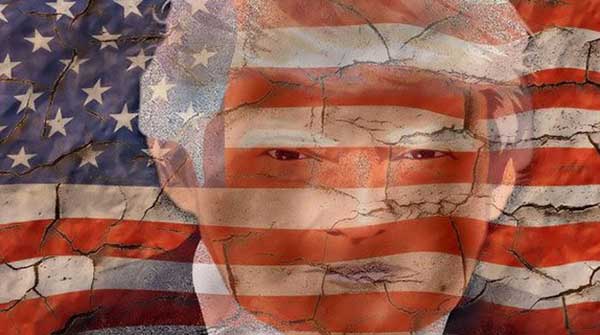Predictions favour a rematch between Joe Biden and Donald Trump, but the outcome will be different from 2020
 This year’s U.S. presidential election is officially underway. Democrats can vote in the Iowa caucuses from Jan. 12 to Mar. 5, or Super Tuesday. Meanwhile, Republicans voted on Jan. 15 in their Iowa caucuses.
This year’s U.S. presidential election is officially underway. Democrats can vote in the Iowa caucuses from Jan. 12 to Mar. 5, or Super Tuesday. Meanwhile, Republicans voted on Jan. 15 in their Iowa caucuses.
The other primaries and caucuses for both major parties will be held over the next few months. We should know the presidential candidates and their running mates before long.
What’s my prediction?
The 2024 election will likely be a rematch of 2020, with Democratic President Joe Biden and former Republican president Donald Trump facing off. The result in 2024, however, will likely be the reverse of what happened four years ago.
That’s right. My sense is Trump will become president once more.
 |
| Related Stories |
| How bad could a Trump-Biden election rematch get?
|
| Lincoln’s 1860 political miracle a warning for Trump and Biden
|
| How to curb your inner Donald Trump
|
Why do I believe this will happen? Let me explain.
The presidential nominations should both end up being straightforward affairs.
Biden has no real competition in the Democratic primaries. The only person who could have potentially disrupted his re-election bid, Robert F. Kennedy, Jr., suspended his campaign on Oct. 9, 2023, to run as an Independent. He’s currently hovering around 68 to 70 percent popularity among party delegates. The two remaining major candidates, House Representative Dean Phillips and author/speaker Marianne Williamson, are both in single digits according to recent polls by Real Clear Polling, FiveThirtyEight and others.
It’s almost a foregone conclusion that Biden will win his party’s nomination.
Trump has more competition in the Republican primaries, but he’s also well ahead of the field. Real Clear Polling, FiveThirtyEight, Decision Desk HQ/The Hill and others suggest he’s polling between 60 and 65 percent, and has close to a 50-point lead. His two main rivals, Florida Governor Ron DeSantis and former South Carolina governor Nikki Haley, are both slightly above 11 percent. The other two major candidates, entrepreneur Vivek Ramaswamy and former Arkansas governor Asa Hutchinson, are in single digits. Ramaswamy left the field Monday night.
Unsurprisingly, Trump won the Iowa caucus handily, with 51 percent after 99 percent of the expected vote was tallied. DeSantis ended up at 21 percent and Haley at 19 percent.
It’s almost a foregone conclusion that Trump will win his party’s nomination, too. He does face one potential roadblock that Biden doesn’t, however.
Some U.S. states have attempted to keep him off the ballot due to his alleged involvement in the Jan. 6, 2021 attack on the U.S. Capitol. While Trump survived a Senate vote on one article of impeachment related to “incitement of insurrection” (his second impeachment proceeding as president), they’ve tried to use the U.S. Constitution’s 14th Amendment’s “insurrection clause” as a means of barring him.
The Colorado Supreme Court and Maine Secretary of State Shenna Bellows both did this, while the Minnesota Supreme Court and Michigan Court of Appeals ruled that state courts cannot determine Trump’s eligibility. Trump and the GOP appealed in Colorado and Maine, staying both decisions. The U.S. Supreme Court is scheduled to hear the Colorado appeal, Trump v. Anderson, on Feb. 8. This ruling will apply to all 50 states and the District of Columbia with respect to Trump’s eligibility for 2024.
Do I believe Trump will win his appeal? Yes.
Many Americans have different interpretations and opinions about his role (or lack thereof) in this terrible incident. He didn’t march with the protestors to the Capitol building that fateful day, but his political rivals and opponents believe he supported them. Since he was cleared of this charge in a Senate impeachment vote, it’s a moot point. Plus, it should be up to the electorate, not partisan individuals and state courts, to decide whether he should sit in the White House for a second term.
This is where Trump has a real advantage.
Biden’s presidency has been a rollercoaster ride. His leadership and health have been regular topics of conversation and concern. Partisan politics in Washington is as rigid and ideological as it has ever been. Foreign policy, which has long been his forte, has been on the shakier side due to the Russia-Ukraine conflict, the Israel-Hamas war and more. Massive amounts of public spending, COVID-19 and otherwise, under his administration has shaken the U.S. economy to its very core.
According to Ankit Mishra in Forbes on Dec. 18, 2023, the country’s economic growth is slated to be 2.4 percent in 2023 and 1.5 percent in 2024 – well below the average for G20 nations – and the “Federal Reserve Bank of New York projects a 52 percent chance that the United States will fall into a recession over the next 12 months.”
That’s why Trump is ahead of Biden in the popular vote in virtually all polling models. This includes aggregation, head-to-head, a three-way race with RFK Jr. (who is around 14-15 percent) and a four-way race with RFK Jr. and academic/activist Cornel West (who is around 2-2.8 percent).
Of interest, Trump has never won the popular vote in a presidential election. He lost to Clinton by 48.2 to 46.1 percent in 2016 and 51.3 to 46.8 percent to Biden in 2020. On the flip side, he won the electoral college in the former election (304 to 227) and lost in the latter nearly in reverse (306 to 232). If he breaks through in his third – and likely final – election campaign for the White House, that would be something.
And unless things dramatically change, that’s precisely what’s going to happen.
Michael Taube, a Troy Media syndicated columnist and Washington Times contributor, was a speechwriter for former Prime Minister Stephen Harper. He holds a master’s degree in comparative politics from the London School of Economics.
For interview requests, click here.
The opinions expressed by our columnists and contributors are theirs alone and do not inherently or expressly reflect the views of our publication.
© Troy Media
Troy Media is an editorial content provider to media outlets and its own hosted community news outlets across Canada.

